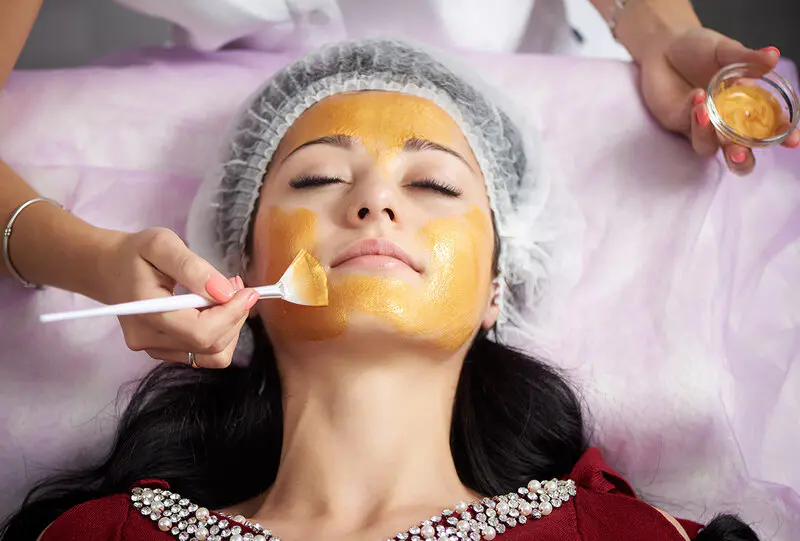A radiant skin is a common desire among beauty enthusiasts. Although genetics can influence skin's natural luminosity, a significant portion of its glow can be achieved through consistent skincare practices. It's entirely possible to achieve a bright and clear complexion without an overly complex routine or expensive products. Instead, a simple yet strategic skincare regimen combined with healthy lifestyle habits can greatly enhance your skin's appearance.
This article provides practical, scientifically-backed skincare tips to optimize your beauty routine. Whether you're new to skincare or looking to improve your current practices, these suggestions will guide you towards healthier and more radiant skin.
1. Understanding Your Skin: The Key to Effective Skincare
Before diving into specific product recommendations, it's essential to recognize your skin type and its unique needs. Factors such as genetics, age, environment, and lifestyle all play a role in shaping your skin's characteristics. The better you understand your skin, the more effectively you can choose products and customize your routine to suit it.
1.1 Identifying Your Skin Type
The first step in creating a skincare routine is to identify your skin type. The main categories are oily, dry, combination, sensitive, and normal. Knowing your skin type helps you select appropriate products that cater to your skin's needs without causing irritation or discomfort.
- Oily skin: Marked by active oil glands, leading to a shiny appearance, large pores, and frequent breakouts.
- Dry skin: Lacking hydration, resulting in rough texture, flaky patches, or a dull appearance.
- Combination skin: Features both oily and dry areas, typically with an oily T-zone and dry cheeks.
- Sensitive skin: Easily irritated by products or environmental factors, prone to redness, stinging, or adverse reactions.
- Normal skin: Well-balanced, neither overly oily nor dry, with minimal imperfections.
Once you've determined your skin type, you can more accurately choose which products and ingredients are most beneficial for your skin.
2. Developing a Customized Skincare Routine
A skincare routine doesn't need to be complicated to be effective. Consistency and the correct application of products in the right order are crucial. A basic skincare routine typically includes three key steps: cleansing, moisturizing, and sun protection. You can further refine this routine by adding targeted treatments based on your specific skin concerns.
2.1 Daily Cleansing
Cleansing is the first and most important step in any skincare routine. It helps remove dirt, oil, makeup, and impurities that accumulate on your skin daily. The goal is to choose a mild, non-abrasive cleanser that effectively cleanses your skin without disrupting its natural moisture barrier.
Tip: Consider a gentle gel or cream cleanser in the morning to refresh your skin, and an oil-based or balm cleanser at night to remove makeup and impurities. For oily skin, think about a foaming or salicylic acid-based cleanser for deep pore cleansing.
2.2 Balancing with Toner
Toners help rebalance the skin's pH and prepare it for better absorption of subsequent products. While traditionally focused on oil removal, modern toners offer a range of benefits, from hydration to pore refinement.
Tip: Look for toners containing hyaluronic acid for hydration, niacinamide for soothing effects, or witch hazel for pore tightening. Avoid alcohol-based toners, as they can dry out the skin.
2.3 Exfoliation with Moderation
Exfoliation is essential for maintaining skin smoothness and removing dead skin cells that contribute to a dull complexion. However, over-exfoliating can damage the skin's barrier and cause irritation. The aim is to strike the right balance.
Tip:
Recent
See All2025-03-07
Transforming the Beauty Industry: The Fusion of Science, Ecology, and Self-Expression
2025-03-07
Discovering the Path to Glowing Skin: A Guide to Natural Radiance
2025-03-07
Harness the Skin-Reviving Effects of Green Tea
2025-03-07
Cultivate Your Skin's Health: Uncover the Perfect Body Wash for Your Skin Type
2025-03-07
Embarking on a Journey to Eternal Beauty: Cultivating Skin for Lasting Grace
2025-03-07
The Importance of Slumber for Skincare: Discovering the Path to Glowing Beauty Through Rest
2025-03-07
Capturing the Essence of Effortless Beauty: The Art of Minimalist Skincare
2025-03-07
Celebrating the Timeless Beauty of Aging: A New Paradigm
2025-03-07
Embrace the Glow: Crafting Your Own Turmeric Facial Mask
2025-03-07
The Connection Between Skincare and Emotional Well-being: How Your Skin Reflects Your Inner Self
Newsletter
Get life tips delivered directly to your inbox!











